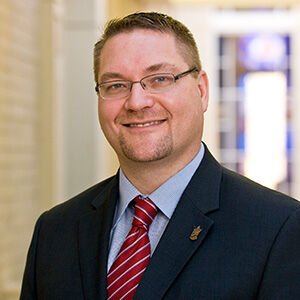MedEd Studio: Jason Frank - Time and competency
In this episode you will meet, Professor Jason Frank, one of the global leaders in competency-based education. You will learn where it came from, why, how it can look, its challenges and what might be around the corner.
Time and competency
"The ancient Greeks had two different conceptions of time. Chronos, the sequential, chronological idea of time and Kairos where time signified a period or season, a moment of indeterminate time, in which a moment happened. A moment when “chronological time” ceased to exist and only the present moment remained. Perhaps like when we experience love!
Medical training has since the days of Abraham Flexner (1866-1959), and before, been time based in the way Chronos defined time, as sequential and chronological. You spent eight months on a rotation, or five years as a trainee, before you were perceived as ready for independent practice. Or? Is chronological time a sufficient proxy for achieved professionalism and competence?
Time as a valid indicator, and predictor, of achieved competence has been questioned since the late 1970s. Brian Hodges coined in an article in 2010 (one hundred years after the “Flexner Report” was published) the expression “Tea steeping-model” of medical education, where he position the Chronos conception of time as a quality proxy in medical education against the emerging “i-Doc model” of medical education, focusing on actual competencies among graduates.
The concept of outcome-based or competency-based education has since then gain significant ground in the world. Today we know that there is a significant variability in how long it takes for an individual to achieve a specific competence. Chronological time is an invalid predictor. In a competence-based system the idea is that expected learning outcomes, and standards, are predefined and available for the learners and supervisors. Competency-based education is assessed in a formative and summative way.
For us in Sweden, the Bologna process, is one example of what a competency-based system looks like. In the national act of higher education there is a list of competencies for each educational program leading to a higher education degree. Health professional education in general, like nursing or physiotherapy, have been early adapters of competency-based education. For residency education, competency-based education, was only introduced in 2009 and there are now national curricula for each medical speciality issued by the National Board of Health and Welfare."
- Jonas Nordquist

Jason Frank
Jason R Frank MD is Professor of Emergency Medicine at University of Ottawa Faculty of Medicine and an Attending Physician at The Ottawa Hospital. He was for 28 years the director of education at the Royal College of Physicians and Surgeons of Canada.
Jason Frank is also one of the hosts for PAPERs podcast.
Publications
Competency-based medical education: implications for undergraduate programs.
Harris P, Snell L, Talbot M, Harden RM
Med Teach 2010 ;32(8):646-50
Competency-based medical education: theory to practice.
Frank JR, Snell LS, Cate OT, Holmboe ES, Carraccio C, Swing SR, Harris P, Glasgow NJ, Campbell C, Dath D, Harden RM, Iobst W, Long DM, Mungroo R, Richardson DL, Sherbino J, Silver I, Taber S, Talbot M, Harris KA
Med Teach 2010 ;32(8):638-45
A tea-steeping or i-Doc model for medical education?
Hodges BD
Acad Med 2010 Sep;85(9 Suppl):S34-44

Jonas Nordquist
Jonas Nordquist, PhD is a medical educationalist. He is the director for Karolinska Institutet’s Prize for Research in Medical Educations Fellows (KIPRIME Fellows).
His research focuses on leadership and implementation of change in health professions education. He has been deeply involved in research and development of physical learning spaces in Sweden and globally.
